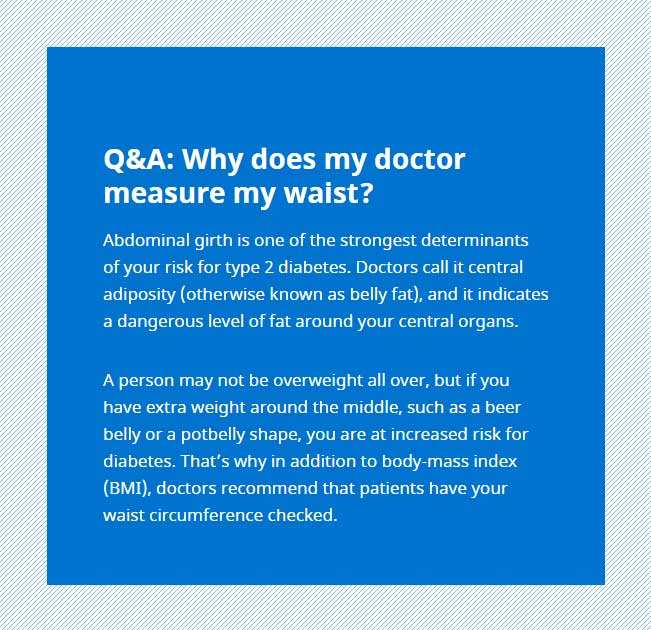
Controlling your blood sugar is one of the best things for women’s heart health, along with maintaining healthy blood pressure and cholesterol levels.
In many patients with diabetes who have no symptoms, diabetes, particularly when poorly controlled, is already harming their blood vessels and leading to hardening of the arteries, a precursor to heart disease. People may not even realize that they have diabetes until the disease progresses to the point where they have a heart attack.
That’s why it’s important to be aware of your blood glucose numbers, along with monitoring your overall weight and body fat.

If Your Blood Sugar Is High
Losing weight is the best way to get high blood sugar under control. Food is energy, so if the calories you consume don’t get burned off, fat accumulates in your body, particularly in the abdomen, which can cause diabetes. Two effective tactics for helping lose extra pounds and prevent diabetes:
- Limiting your carbohydrate and sugar intake.
- Doing heart-pumping, heavy-breathing aerobic exercise.
If you’re just getting started with diet changes and exercise, work with your doctor to come up with a combined plan that’s best for your needs. Be sure to get your blood glucose levels monitored as recommended.
Treatment can bring type 2 (or adult-onset) diabetes under control before you need insulin, if it is combined with weight loss and changes in lifestyle. This is especially true in those whose glucose levels are in the mild range. Glucose levels that are above normal can be considered a wake-up call.
Women with Diabetes: Heart Disease Risk
Anyone with either type 1 or type 2 diabetes faces an elevated risk of heart attack and other cardiovascular problems, but women who are younger than 60 — a group often thought of as having a lower danger of heart problems — actually have up to four times the risk of heart disease when they have type 2 diabetes, recent Johns Hopkins research shows.
For this reason, women with high blood glucose levels should take the condition particularly seriously. Adults with poorly controlled diabetes are never too young to have a heart attack or stroke, the experts say.
Important Notice: This article was originally published at www.hopkinsmedicine.org where all credits are due.
Disclaimer
The watching, interacting, and participation of any kind with anything on this page does not constitute or initiate a doctor-patient relationship with Dr. Farrah™. None of the statements here have been evaluated by the Food and Drug Administration (FDA). The products of Dr. Farrah™ are not intended to diagnose, treat, cure, or prevent any disease. The information being provided should only be considered for education and entertainment purposes only. If you feel that anything you see or hear may be of value to you on this page or on any other medium of any kind associated with, showing, or quoting anything relating to Dr. Farrah™ in any way at any time, you are encouraged to and agree to consult with a licensed healthcare professional in your area to discuss it. If you feel that you’re having a healthcare emergency, seek medical attention immediately. The views expressed here are simply either the views and opinions of Dr. Farrah™ or others appearing and are protected under the first amendment.
Dr. Farrah™ is a highly experienced Licensed Medical Doctor certified in evidence-based clinical nutrition, not some enthusiast, formulator, or medium promoting the wild and unrestrained use of nutrition products for health issues without clinical experience and scientific evidence of therapeutic benefit. Dr. Farrah™ has personally and keenly studied everything she recommends, and more importantly, she’s closely observed the reactions and results in a clinical setting countless times over the course of her career involving the treatment of over 150,000 patients.
Dr. Farrah™ promotes evidence-based natural approaches to health, which means integrating her individual scientific and clinical expertise with the best available external clinical evidence from systematic research. By individual clinical expertise, I refer to the proficiency and judgment that individual clinicians acquire through clinical experience and clinical practice.
Dr. Farrah™ does not make any representation or warranties with respect to the accuracy, applicability, fitness, or completeness of any multimedia content provided. Dr. Farrah™ does not warrant the performance, effectiveness, or applicability of any sites listed, linked, or referenced to, in, or by any multimedia content.
To be clear, the multimedia content is not intended to be a substitute for professional medical advice, diagnosis, or treatment. Always seek the advice of your physician or other qualified health providers with any questions you may have regarding a medical condition. Never disregard professional medical advice or delay in seeking it because of something you have read or seen in any website, video, image, or media of any kind. Dr. Farrah™ hereby disclaims any and all liability to any party for any direct, indirect, implied, punitive, special, incidental, or other consequential damages arising directly or indirectly from any use of the content, which is provided as is, and without warranties.








